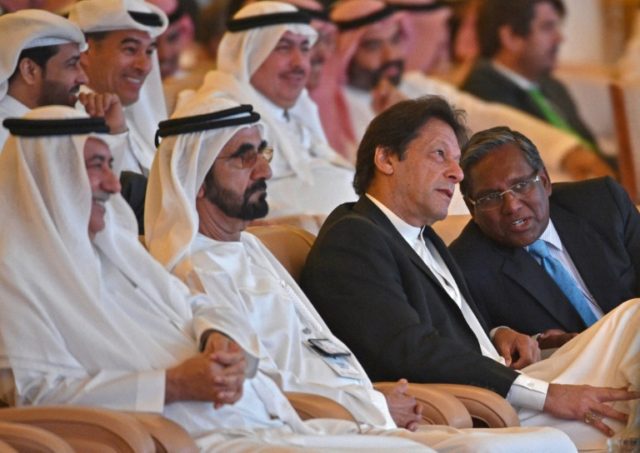Iranian Foreign Minister Mohammad Javad Zarif met with Pakistani Prime Minister Imran Khan in Islamabad on Wednesday to discuss border issues, energy, and greater cooperation on regional matters such as the conflicts in Yemen and Afghanistan.
One of the more urgent topics in the meeting was the October 16 abduction of 14 Iranian security personnel from a post on the Pakistani border. The victims included several members of Iran’s Islamic Revolutionary Guard Corps (IRGC), loyal to the theocratic side of Iran’s government.
A group of Sunni Muslim separatists called Jaish al-Adl (“Army of Justice”) claimed responsibility for the abduction, describing it as retaliation for Shiite-dominated Iran’s oppression of Sunnis. The IRGC announced it had killed the number two leader of Jaish al-Adl two weeks before the abduction.
The IRGC has placed a high priority on recovering the captives and demanded Pakistan do more to “confront these terrorist groups that are supported by some regional states,” as a statement issued by the IRGC shortly after the kidnapping said. The Iranians have floated the idea of attacking Sunni militia bases inside Pakistan if Islamabad does not deal with the separatists.
Pakistani Foreign Minister Shah Mahmood Qureshi responded by blaming the Jaish al-Adl attack on “common enemies unhappy with the existing close, friendly relations between Pakistan and Iran.”
In other words, the Iranians and Pakistanis both think Saudi Arabia is behind the attack. The IRGC ground forces commander reportedly denounced Jaish al-Adl as “paid mercenaries” of Saudi Arabia in a meeting with tribal elders.
In addition to meeting with the prime minister, Iranian Foreign Minister Zarif met with the Pakistani army chief of staff to discuss border security and plans to rescue the kidnapped border guards.
The Diplomat wrote this week that tensions between Pakistan and Iran are worse than either side wants to admit, in part because of the Sunni Muslims mentioned above, a group known as the Balochs who live on both sides of the Pakistan-Iran border. The Balochs have a history of uneasy relations with both Pakistan and Iran dating back to the Cold War era, while their territory is coveted by both countries, in part because of their port cities, which also make the Balochs players in the regional rivalry between India and China.
The Iranians are believed to have funded various insurgent groups inside Pakistan, including Balochs living on the Pakistani side of the border, as part of Tehran’s regional shadow war with Saudi Arabia and the United States. There are Shiite groups considered terrorists by the Pakistani government that openly claim to be supported by Iran. Iran sees itself offering protection to Shiite groups in the border region which are not well defended by the Pakistani government.
Iran has always been concerned about Pakistan’s relations with Saudi Arabia, but might be even more eager to woo Pakistan out of the Saudi orbit as tough new U.S. sanctions will go into effect next week. Pakistan has indicated it opposes the sanctions and continues to support the nuclear deal with Iran arranged by the Obama administration, but Islamabad is also interested in developing better relations with the United States and has indicated a reluctance to antagonize Washington by helping Iran evade the upcoming sanctions.

COMMENTS
Please let us know if you're having issues with commenting.